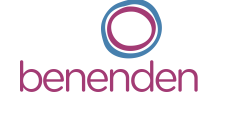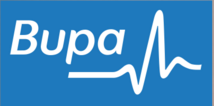What is the best acupuncture protocol for IVF?

Understanding Acupuncture and Its Role in IVF
Acupuncture is an ancient Chinese practice that involves the use of thin needles to stimulate specific points on the body. In recent years, it has gained popularity as a complementary therapy for In Vitro Fertilization (IVF). IVF is a common fertility treatment that involves the retrieval of eggs, fertilization in a laboratory, and then transferring the embryos into the uterus.
Acupuncture is believed to help improve the success rates of IVF by enhancing blood flow to the reproductive organs, reducing stress and anxiety, regulating hormones, and improving egg quality. Let’s explore the basics of acupuncture and its role in supporting IVF treatment.
The Basics of Acupuncture
Acupuncture is based on the concept of Qi (pronounced “chee”), which is the vital energy that flows through the body along pathways known as meridians. When there is an obstruction or imbalance of Qi, it can lead to various health issues. Acupuncture aims to restore the balance and flow of Qi by stimulating specific points on the body.
During an acupuncture session, the practitioner will insert thin, sterile needles into specific acupoints that correspond to the patient’s condition. The needles remain in place for about 20-30 minutes while the patient lies in a relaxed position. The sensation is usually described as a slight tingling or dull ache.
How Acupuncture Supports IVF Treatment
Acupuncture can be a valuable addition to IVF treatment as it addresses not only the physical aspects but also the emotional and mental well-being of the patient. Here’s how acupuncture can support IVF:
- Enhancing Blood Flow to the Reproductive Organs: Acupuncture helps improve blood circulation to the uterus and ovaries, which can enhance the delivery of oxygen and nutrients to these areas. It also aids in the removal of toxins and waste products, creating a healthier environment for the eggs and embryos.
- Reducing Stress and Anxiety: Undergoing IVF can be a stressful and anxiety-inducing experience. Acupuncture can help reduce stress levels by promoting the release of endorphins, which are natural painkillers and mood enhancers. It also activates the parasympathetic nervous system, inducing a state of relaxation.
- Regulating Hormones: Acupuncture is believed to regulate hormones involved in the menstrual cycle, such as estrogen and progesterone. This hormonal balance is crucial for successful IVF outcomes.
- Improving Egg Quality: Acupuncture may help improve the quality of eggs by increasing blood flow to the ovaries and enhancing their ability to produce healthy, mature eggs.
Furthermore, acupuncture can also have a positive impact on the overall well-being of the patient during the IVF process. It can help improve sleep quality, boost energy levels, and promote a sense of calm and relaxation. These benefits can contribute to a more positive IVF experience and potentially improve the chances of success.
Additionally, acupuncture sessions provide an opportunity for patients to discuss their concerns and emotions with a trained practitioner who understands the challenges of infertility. This emotional support can be invaluable during the often emotionally turbulent journey of IVF.
The Importance of Timing in Acupuncture for IVF
The timing of acupuncture sessions in relation to the IVF cycle is of utmost importance. Let’s explore the two key phases: Pre-IVF Acupuncture Sessions and Acupuncture During the IVF Cycle.
Pre-IVF Acupuncture Sessions
Before starting IVF treatment, it is recommended to have several acupuncture sessions to prepare the body for optimal receptivity and fertility. These sessions typically begin three to six months before the IVF cycle and focus on addressing any underlying health issues, optimizing egg and sperm quality, and reducing stress levels.
During these pre-IVF acupuncture sessions, the acupuncturist carefully assesses the individual’s overall health and well-being. They take into consideration factors such as diet, lifestyle, and emotional state. By delving into these aspects, the acupuncturist can tailor the treatment plan to the specific needs of the patient.
One aspect that is often addressed during pre-IVF acupuncture sessions is the regulation of the menstrual cycle. Acupuncture can help balance hormones and regulate the timing and quality of ovulation, which is crucial for successful IVF outcomes. By optimizing the menstrual cycle, the chances of a successful implantation and pregnancy are significantly increased.
Acupuncture During the IVF Cycle
During the IVF cycle, acupuncture is typically performed at specific stages to support the treatment process. Here’s a breakdown of when acupuncture can be beneficial:
- Baseline Acupuncture: This session is done before starting the stimulation medication to ensure the body is in an optimal state. It helps to prepare the body for the upcoming hormonal changes and sets a solid foundation for the IVF cycle.
- Pre-Retrieval Acupuncture: This session is usually performed a day or two before the egg retrieval procedure. It aims to relax the patient, reduce any discomfort, and prepare the body for the procedure. By promoting relaxation, acupuncture can help alleviate any anxiety or tension that may arise before the retrieval, creating a more positive and calm environment for the patient.
- Pre-Embryo Transfer Acupuncture: This session is done shortly before the embryo transfer procedure to enhance relaxation, improve blood flow to the uterus, and increase the chances of successful implantation. Acupuncture at this stage can help create an optimal environment in the uterus, promoting a higher chance of implantation and ultimately, a successful pregnancy.
- Post-Embryo Transfer Acupuncture: This session is usually performed immediately after the embryo transfer to further support implantation and reduce stress. Acupuncture can help relax the body and mind, reducing stress levels and promoting a sense of well-being during this critical time. By creating a calm and balanced state, acupuncture may enhance the chances of successful implantation and pregnancy.
It is important to note that the timing of acupuncture sessions may vary depending on individual circumstances and the recommendations of the acupuncturist. Each person’s journey through IVF is unique, and a personalized approach is essential to achieve the best possible outcomes.
By carefully considering the timing of acupuncture sessions in relation to the IVF cycle, individuals can optimize their chances of success. Whether it’s preparing the body in the pre-IVF phase or supporting the treatment process during the IVF cycle, acupuncture can play a valuable role in enhancing fertility and overall well-being.
Key Acupuncture Points for IVF Support
Acupuncture targets specific points on the body that have been identified as beneficial for enhancing fertility and supporting the IVF process. Let’s explore some of these key acupuncture points:
Acupuncture Points for Enhancing Fertility
There are several acupuncture points that are commonly used to enhance fertility in both men and women. These include:
- Spleen 6 (SP6): Located on the inside of the lower leg, three finger-widths above the ankle bone. It is believed to nourish the blood, regulate hormones, and strengthen the uterus.
- Renal 3 (KD3): Located on the inside of the ankle, in the depression between the Achilles tendon and the ankle bone. It is thought to tonify the kidney Qi and strengthen the reproductive system.
- Conception Vessel 4 (CV4): Located on the midline of the abdomen, two finger-widths below the belly button. It is believed to tonify the uterus and regulate the menstrual cycle.
Points for Reducing Stress and Anxiety
During the IVF process, stress and anxiety levels can be high. Acupuncture can help alleviate these emotions by targeting specific points, including:
- Heart 7 (HT7): Located on the inside of the wrist, at the crease where the hand meets the arm. It is considered the “Spirit Gate” and is known for its calming and grounding effects on the mind.
- Yin Tang: Located between the eyebrows, on the midline of the forehead. It is often referred to as the “Third Eye” and is used to promote relaxation and reduce stress.
- Pericardium 6 (PC6): Located on the inside of the forearm, three finger-widths up from the wrist crease. It is commonly used to alleviate anxiety, nausea, and promote overall relaxation.
The Frequency and Duration of Acupuncture Sessions
The frequency and duration of acupuncture sessions can vary depending on individual needs and treatment plans. Let’s explore some general guidelines:
How Often Should You Have Acupuncture?
For optimal results, it is recommended to have regular acupuncture sessions leading up to and during the IVF cycle. Typically, weekly sessions are recommended for several months before the IVF cycle. During the IVF cycle, more frequent sessions may be advised.
How Long Should Each Session Last?
An acupuncture session usually lasts for about 30 minutes to an hour, including the time for consultation and needle insertion. The duration may vary depending on the specific needs of the patient and the treatment plan.
Safety and Side Effects of Acupuncture in IVF
Acupuncture is generally considered safe when performed by a trained and licensed practitioner. However, it is important to be aware of potential risks and manage any side effects that may arise.
Potential Risks of Acupuncture
The risks associated with acupuncture are minimal but may include slight bruising or discomfort at the needle insertion sites, dizziness, or temporary worsening of symptoms. It is crucial to choose a qualified practitioner who follows proper hygiene and safety protocols.
Managing Side Effects
If side effects occur, it is important to communicate with the acupuncture practitioner and seek medical advice if needed. Some side effects can be managed by staying well-hydrated, resting, and observing any changes in symptoms.
In conclusion, acupuncture can be a beneficial addition to IVF treatment, providing support both physically and emotionally. Understanding the basics of acupuncture, timing the sessions correctly, targeting key acupuncture points, and considering the frequency and duration of sessions are essential factors in optimizing the potential benefits of acupuncture for IVF. As with any treatment, it is important to consult with a qualified healthcare professional to determine the best acupuncture protocol for your individual needs.





















